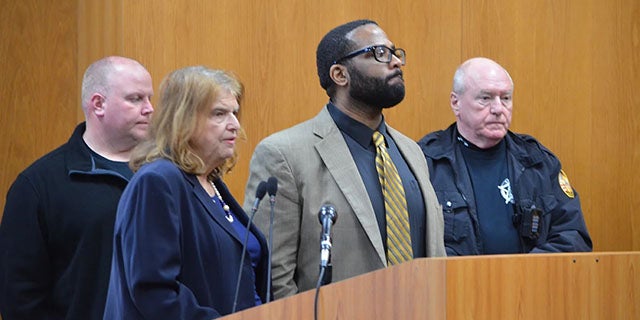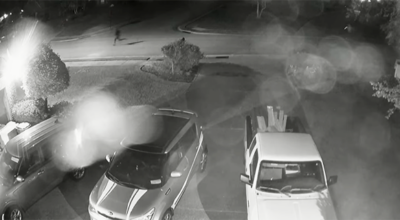Mississippi Supreme Court upholds convictions of man who killed deputy, seven others
Published 3:40 pm Thursday, March 7, 2024
The Supreme Court of Mississippi has upheld the convictions and sentences for Willie Cory Godbolt in the 2017 slayings of multiple people in Lincoln County.
On May 27, 2017, in what began as a domestic altercation, Godbolt shot and killed Lincoln County Sheriff’s Deputy William Durr; Barbara Mitchell, the stepmother of his estranged wife Sheena; Sheena’s sister, Tocarra May; Sheena’s aunt, Brenda May; two minors who were children of friends of Sheena, Jordan Blackwell and Austin Edwards; and Ferral and Sheila Burage.
In March 2018, Goldbolt was indicted by a grand jury on 12 counts: four counts of capital murder for Durr, Blackwell, Edwards, and Sheila Burage; four counts of first-degree murder for Tocarra May, Brenda May, Mitchell, and Ferral Burage; two counts of kidnapping for Lapeatra Stafford and Xavier Lilly, a minor. On Feb. 25, 2020, a jury returned guilty verdicts on all counts.
On Feb. 27, 2020, Godbolt was sentenced to death for all four of the capital murder convictions. He was given life in prison sentences for each of the four first-degree murder counts; the attempted murder of Deputy Tim Kees; and the kidnapping of Lilly. He was also sentenced to 20 years in prison for the kidnapping of Stafford, and 20 years for armed robbery.
Two briefs were filed with the Supreme Court on behalf of Godbolt — one by his attorney and one by himself — summarized in the Court’s response as 19 issues. These were whether:
- The trial court erred by denying a motion to sever
- The trial court erred by failing to transfer physical venue
- The trial court erred by limited defense counsel’s voir dire (preliminary examination of a potential witness or juror)
- Godbolt’s right to an impartial jury was violated
- The trial court erred by denying a motion to suppress Godbolt’s statements to the media and law enforcement
- The trial court erred by denying a motion to suppress evidence from his vehicle, home and electronic devices
- The trial court erred by allowing his estranged wife Sheena to testify
- The trial court erred by allowing evidence of prior bad acts
- The trial court erred by allowing the introduction of numerous 911 calls into evidence
- The trial court erred by allowing the destruction of Godbolt’s cell phone
- The trial court erred by not enforcing the Justice Court order for a psychiatric evaluation
- The trial court erred by allowing evidence of an unauthenticated Facebook message reportedly sent by Godbolt
- The trial court erred by limiting Godbolt’s allocution (formal speech in court)
- The trial court erred by allowing victim impact evidence
- Godbolt received ineffective assistance of counsel
- The State committed prosecutorial misconduct during closing arguments
- The death sentences based on the HAC aggravator (heinous actions) are unconstitutional
- The death sentences are unconstitutional under the Eighth Amendment (cruel and unusual)
- Cumulative error deprived the defendant of a fundamentally fair trial
The Supreme Court answered each of the issues separately, concluding, “having found no error, Godbolt’s sentences and convictions are affirmed.”
Affirming justices were Chief Justice Michael K. Randolph, Associate Justice Josiah D. Coleman, Associate Justice James D. Maxwell II, Associate Justice Dawn H. Beam, Associate Justice David M. Ishee, and Associate Justice T. Kenneth Griffis.
Presiding Justice Leslie D. King disagreed, writing that Godbolt “was deprived of the constitutional right to a fair and impartial jury. Accordingly, the law requires us to reverse his convictions and sentences and remand the case for a new trial. I consequently dissent.” Presiding Justice James W. Kitchens agreed with King.
The Supreme Court’s full report can be accessed here.






